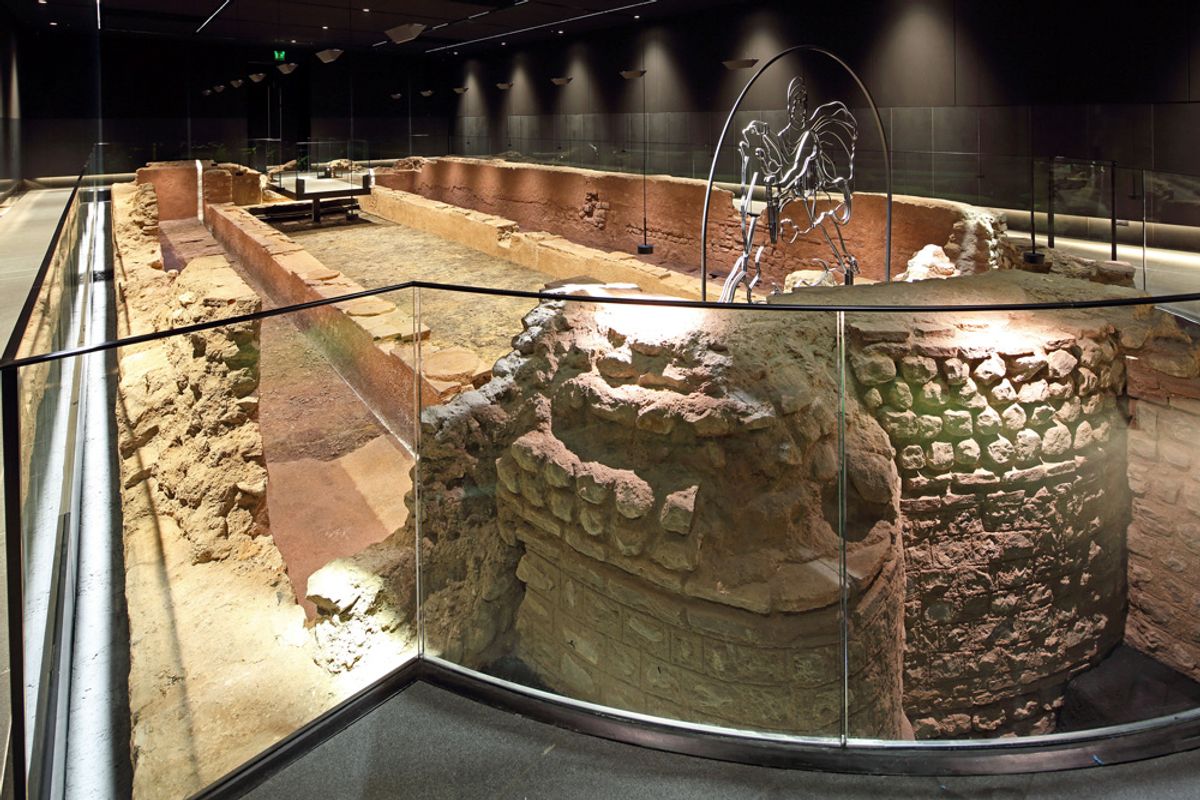Bloomberg’s swanky new Norman Foster-designed European HQ is now officially open from its top to its very bottom with the unveiling yesterday (8 November) of the Roman Temple of Mithras, which has been put back in its original site beneath the new building. The temple was discovered by chance in 1954 after being exposed by bomb damage and until recently had been ignominiously reconstructed on the roof of a nearby car park. Now the London Mithraeum is reinstated in a special subterranean chamber seven metres below street level. Here in ancient times the Walbrook River flowed through marshy ground and around 1800 years ago, the Romans built a temple to the young God Mithras, the bull slayer.
Proceedings were kicked off with a jovial opener from company founder, owner and CEO Michael Bloomberg who declared that, if his school grades had been better, this was a speech he should really be giving in Latin. He affirmed his company’s role as stewards for the site and its artefacts: “London has a long history as a crossroads for culture and business, and we are building on that tradition.” Literally, in the case of the Mithraneum.
The all-male cult surrounding Mithras remains shrouded in mystery and this is emphasized in the Mithraneum’s latest Bloomberg incarnation in which contemporary visitors to the temple are plunged into darkness and surrounded by the sound of shuffling sandaled feet and voices chanting in Latin the names of initiates taken from the few votive inscriptions that survive. In what has particular resonance with its current City of London surroundings there is also evidence that the Mithraneum was a place of much feasting and ritualistic male-bonding—although this aspect receives less airplay in the current visitor experience.
Given Bloomberg’s role as a global disseminator of business and market data it is also fitting that, among the wealth of artefacts unearthed by more recent excavations on this rich archeological site was an ancient IOU, dated 8 January AD 57. Drawn up between Tibullus, freedman of Venustus and Gratus, freedman of Spurious for the sum of 105 denarii, this engraved wooden stylus tablet preserved in the mud of the Walbrook constitutes the first record of a financial transaction in Britain. “We didn’t plan that!” commented Mr Bloomberg.



